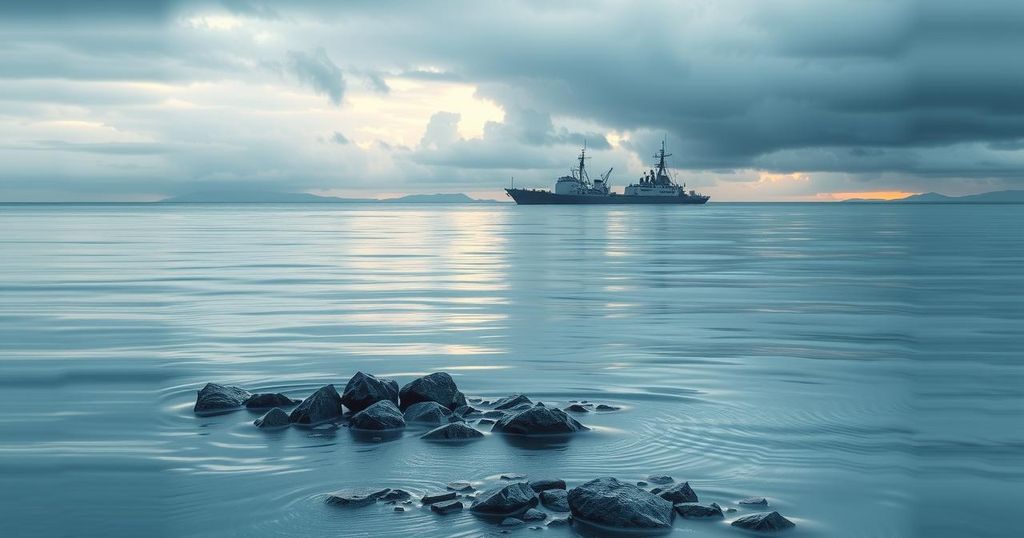The United States has condemned Venezuelan naval vessels threatening ExxonMobil assets in disputed waters claimed by Guyana. Guyanese President Irfaan Ali indicated that such actions could lead to consequences. The tensions stem from historical territorial disputes exacerbated by oil discoveries, with both nations maintaining strong, opposing claims over the territory.
On Saturday, the United States condemned an incident involving Venezuelan naval vessels, which were reported to be threatening an ExxonMobil unit in maritime territory claimed by Guyana. This came shortly after Guyanese President Irfaan Ali stated that a Venezuelan patrol boat had approached assets in Guyana’s exclusive waters early in the morning. Ali emphasized that Guyana had informed its international partners to remain vigilant amid rising tensions.
The U.S. State Department issued a warning against further incursions, declaring that the actions of Venezuelan vessels constituted a significant violation of Guyana’s internationally recognized maritime territory. The statement from the U.S. Bureau of Western Hemisphere Affairs specified that any additional provocation from the Venezuelan government could lead to consequences for President Nicolás Maduro’s regime.
Guyana, historically one of the poorer nations in Latin America, has experienced escalating tensions with Venezuela over the disputed Essequibo territory, a region abundant in natural resources. Since 2015, following the discovery of vast oil deposits by ExxonMobil, these tensions have intensified. The Guyanese government recently awarded a new contract to ExxonMobil, further aggravating the situation.
President Ali reiterated on social media that the floating production vessels were operating legally within Guyana’s exclusive economic zone and expressed his nation’s commitment to maintaining peace and the rule of law. He stated a determination to pursue diplomatic solutions while firmly opposing threats to Guyana’s territorial integrity.
In response, Venezuela rejected President Ali’s claims, asserting that he was misrepresenting facts regarding the naval presence. The Venezuelan Foreign Ministry argued that the waters in question are not classified as part of Guyana and are under territorial delineation according to international law.
The situation escalated on February 17, when Guyana reported that six of its soldiers had been wounded during an ambush by individuals believed to be part of a Venezuelan criminal group. This incident coincided with the anniversary of a historical agreement that sought to resolve the territorial dispute.
Despite an earlier resolution in 1899 purportedly favoring Guyana, President Maduro proposed establishing a new Venezuelan province in the contested area in 2023. Notably, a meeting took place between Presidents Ali and Maduro in December 2023, where both agreed on the necessity to avoid the use of force in their deliberations. However, subsequent military exercises conducted by Venezuela in the border region prompted reactions viewed as provocations by Guyana and its allies.
The recent naval incursion by Venezuela has heightened tensions between Guyana and the Maduro regime, prompting strong condemnation from the United States. Both nations maintain firmly entrenched positions regarding territorial claims, complicated by recent oil discovery and contracts in the disputed region. Diplomatic efforts continue, but the potential for escalation remains a significant concern.
Original Source: www.firstpost.com






